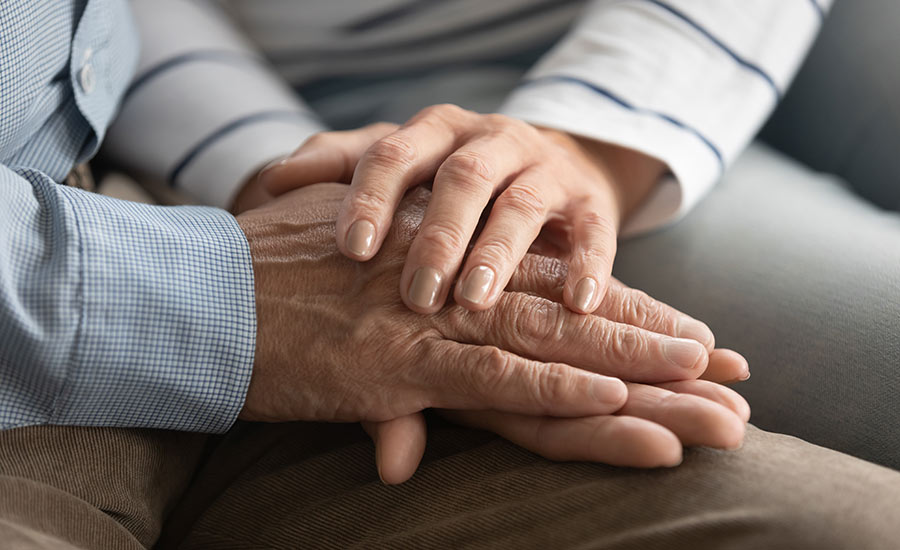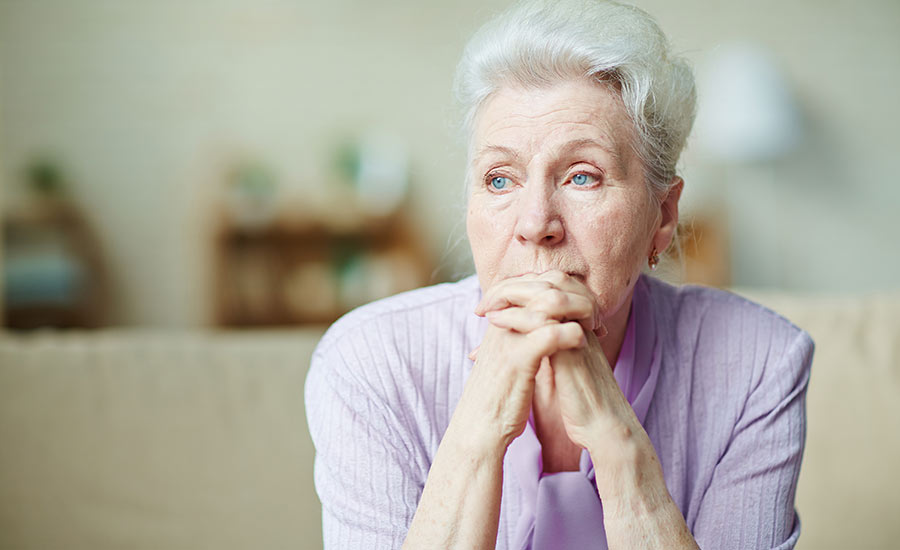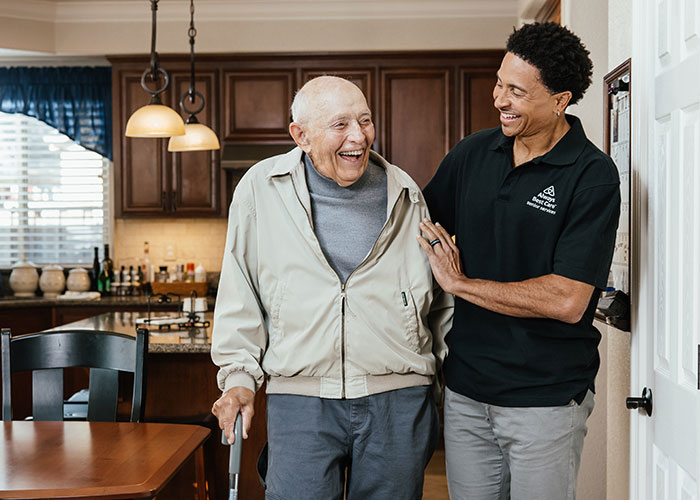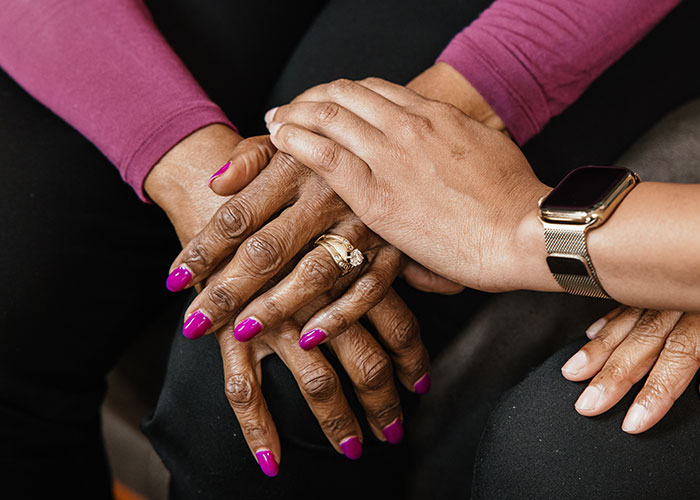Why Do Old People Shake? [Tips to Reduce Shaking + FAQs]
![Why Do Old People Shake? [Tips to Reduce Shaking + FAQs]](https://cdn.alwaysbestcare.com/wp-content/uploads/2024/08/why-do-old-people-shake-hero-image.jpg)
Involuntary tremors are quite common among the elderly and usually aren’t life-threatening.
However, it’s important to note that elderly individuals who develop tremors after the age of 70 may face higher risks of dementia.
In addition, even mild tremors can complicate everyday tasks, whether it’s eating soup or tying shoelaces.
If your elderly loved one is experiencing involuntary shaking, we’re here to help.
In this article, we’ll explain the types of tremors, common causes of why old people shake, and share tips on how to manage shaking in the elderly.
Table of Contents
Types of Tremors
Before we dive into why old people shake, it’s important to understand the types of tremors, as they can indicate different underlying conditions.
Common types of tremors include:
Postural Tremor
Postural tremor occurs when you’re trying to keep a part of your body still against gravity, like when you hold your arms out in front of you.
This type of tremor can be caused by Parkinson’s disease or essential tremor that causes involuntary shaking.
Isometric Tremor
Isometric tremor occurs when your muscles tense against a stationary object without the body moving. For example, your arms might shake while holding a push-up position.
In addition, pushing against a wall or holding a heavy object can also cause isometric tremors.
Kinetic Tremor
Kinetic tremor occurs during voluntary movement. It has two sub-types, including task-specific tremors and intention tremors.
Task-specific tremors only appear during specific activities, such as writing, drawing speaking, laughing, or knitting. Intention tremors are more noticeable during precise movements and intensify as you approach a target, such as pushing a button.
Rest Tremor
Rest tremor occurs when you’re lying in bed or sitting down. These tremors are usually associated with parkinsonism — an umbrella term that refers to a group of movement symptoms often linked to Parkinson’s disease.
Unlike rest tremors from other causes, those from Parkinson’s disease also come with other symptoms like reduced blink rate, small handwriting, and stiffness in the arms and legs.

Why Do Old People Shake?
Common causes of shaking in the elderly include:
- Essential tremor: Essential tremor causes involuntary, rhythmic shaking. It typically affects the hands but can also impact the voice, head, and other body parts. This type of tremor often worsens with age.
- Underlying health conditions: Conditions like hypoglycemia or hyperthyroidism can cause tremors. These tremors may be more evident in the elderly due to less effective regulatory mechanisms, or the processes that the body uses to maintain a stable internal environment
- Brain injury: Traumatic brain injuries can lead to post-traumatic tremors. Depending on the area of the brain affected, these tremors can appear immediately after the injury or develop later as part of a degenerative process. For example, damage to the cerebellum can cause tremors immediately after the injury.
- Parkinson’s disease: Parkinson’s disease is a neurological condition in which nerve cells produce dopamine are progressively lost, leading to symptoms such as tremors, muscle stiffness, and balance difficulties.
- Neurological damage: Conditions, such as multiple sclerosis, can impair nervous system control over muscle movements, resulting in involuntary shaking.
- Muscle weakness: Sarcopenia, or age-related muscle loss, can cause muscles to be less stable. This can lead to a trembling appearance while performing physical activities.
- Stress and anxiety: Emotional disturbances can cause or worsen tremors, as they trigger the body’s stress response. These hormones prepare the body for a “fight or flight” response by increasing the heart rate and blood pressure.
- Medication side effects: Elderly individuals taking medications for mood disorders and asthma may experience tremors as a side effect.
- Lifestyle factors: Poor diet, lack of exercise, and excessive alcohol or caffeine intake can aggravate shaking.

How to Manage Shaking in the Elderly
Shaking in the elderly can make everyday tasks like eating, shaving, and writing more difficult.
However, there are steps you can take to help your elderly loved one manage these challenges more effectively, including:
- Make sure your elderly loved one performs regular exercise to help manage their shaking. Tailored exercises, such as those focusing on fine motor skills and balance, can be particularly beneficial. It’s important to consult with a healthcare provider to design an exercise program that’s safe and effective for the individual’s health condition.
- Encourage your elderly loved one to attend physical therapy sessions to strengthen their muscles and improve coordination. For example, occupational therapists can adapt daily activities for those with tremors, like suggesting weighted utensils to make eating easier and more comfortable.
- Motivate your elderly loved one to practice relaxation techniques, such as meditation, yoga, deep breathing, or aromatherapy, to reduce stress-induced tremors. For example, a daily meditation session can help provide your elderly loved one with a sense of peace.
- Implement regular exercise and incorporate a healthy diet into your elderly loved one’s routine to help improve their overall health.
- Motivate your elderly loved one to cut down on caffeine and other stimulants to help reduce their tremors. Consider alternatives, such as decaffeinated coffee or herbal teas.
- Establish a consistent bedtime routine for your elderly loved one. Quality sleep can help manage tremors, as it allows the brain and body to rest and recover.
- Employ adaptive devices designed to aid daily tasks, such as non-slip mats and grips in the kitchen, to help your elderly loved one maintain independence at home.
- Address any underlying medical issues that may contribute to your elderly loved one’s tremors, such as Parkinson’s disease or hyperthyroidism, with appropriate medications, such as anticonvulsants.
- Accompany your elderly loved one to their doctor’s appointments to monitor their condition and adjust treatment plans as necessary. They can also review and adjust any medications that might cause tremors as a side effect, such as steroids or amphetamines.
Find Compassionate Senior Care at Always Best Care
While developing tremors can be alarming at any age, they usually aren’t a cause for concern.
However, consider keeping your elderly loved one’s healthcare providers informed. If shaking becomes more than just a mild nuisance, taking proactive steps can help significantly improve their quality of life.
At Always Best Care, we understand that everyone’s needs are unique.
That’s why we offer personalized attention and care to make sure your elderly loved one stays comfortable and confident as they age gracefully.
Our services include:
- In-home care: We provide the best possible care for your elderly loved one in the familiarity of their home. Our in-home care services include nutritious meal preparation, light housekeeping, companionship, overnight care, and beyond.
- Skilled home health care services: Available in select areas, we develop customized care plans for chronic conditions such as and help manage ongoing medical needs.
- Specialized home care services: We ensure daily social interactions and provide health care guidance in the comfort of your loved one’s home. We utilize advanced technologies like personal emergency response systems, balance tracking, and remote patient monitoring to manage symptoms effectively.
- Respite care services: We offer flexible support, from short breaks to extended care periods, giving you time to rest from caregiving duties.
- Dementia care services: We deliver compassionate care for individuals with dementia, focusing on their comfort and well-being.
- Senior living referral services: We can help find suitable senior living communities for your loved one, matching their specific needs and preferences with the right facility.
- Veterans assistance program: We assist veterans in obtaining financial aid for care as our way of thanking them for their years of service.
FAQs About Why Do Old People Shake?
Still have questions about why old people shake? Explore the answers below.
Can sudden shaking in the elderly be genetic?
Yes, genetic factors can sometimes cause sudden shaking in the elderly, particularly in the case of essential tremors, which are often inherited in a familial pattern.
If a family member has essential tremor, your chances of developing it are higher. In addition, a genetic predisposition to conditions such as Parkinson’s disease can lead to tremors as you age.
Is it normal for an elderly person’s hand to shake?
Yes, it’s common for elderly individuals to experience hand shaking or tremors.
This is due to different reasons — some of which are nothing to worry about, while others might be signs of underlying health issues, such as Parkinson’s disease.
Is shaking a symptom of dementia?
Yes, shaking can be a symptom of dementia. You might notice your loved one shaking, like Parkinson’s symptoms, even though they don’t have this diagnosis.
Their hands may tremble or walk more slowly than usual.
How do you get an older person to stop shaking?
Consult with your elderly loved one’s healthcare provider to determine if anti-seizure medications could help reduce the shaking.





